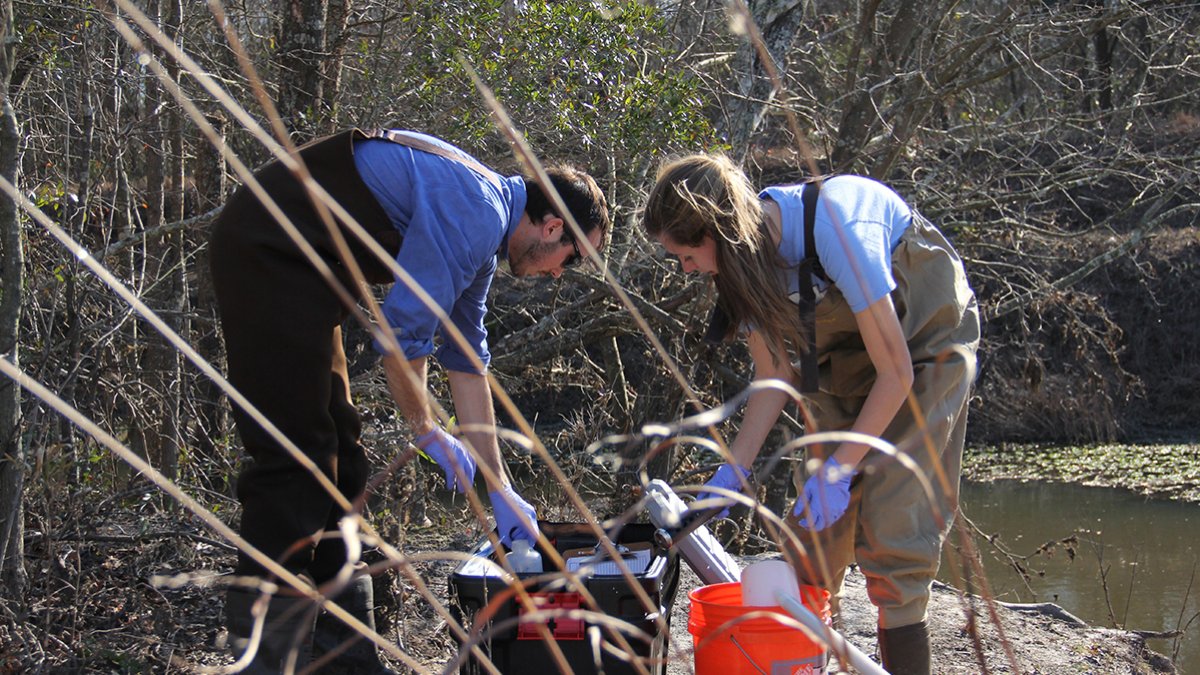Carolina responds to Hurricane Matthew
In the year since Hurricane Matthew hit eastern North Carolina, 16 research teams began storm-related projects on topics like water quality, buy-out programs and coastal resilience.

One of the most destructive hurricanes in the past decade, Hurricane Matthew drenched North Carolina with 350 millimeters of rain over the course of just 24 hours. It caused $1.5 billion in flood damage to 100,000 houses, businesses and government buildings, took the lives of 28 North Carolinians, forced more than 4,000 people to evacuate, and slammed into 50 counties across the state, according to the North Carolina Department of Public Safety.
UNC Research Communications has put together an interactive map that shows the projects UNC-Chapel Hill researchers are working on in the aftermath of Hurricane Matthew. Sixteen teams are working on storm-related projects on topics like water quality, buy-out programs and coastal resilience. Here are a few examples:
- Gavin Smith, director of the Coastal Resilience Center of Excellence, manages the Hurricane Matthew Disaster Recovery and Resilience Initiative, which creates and implements local disaster recovery plans and partners with North Carolina communities to identify storm-related issues.
- Rachel Noble at the UNC Institute for Marine Sciences is studying a hurricane’s impact on contaminants in water.
- Larry Engle, an epidemiology professor in the Gillings School of Global Public Health, is developing a web-based tool to help local public health professionals and state decision makers prioritize and target community-level interventions for areas impacted by a hurricane.
- Laura Moore, director of the Coastal Environmental Change Lab, is surveying the vegetation and topography of dunes to help people know which dune grass species will help provide the best protection for particular areas.
Meanwhile, members of the Carolina community came together to help in other ways and that work is ongoing, too. Several groups of Carolina students, faculty and staff have traveled to Lumberton, Garland, Princeville and Fayetteville, North Carolina to help with recovery efforts. Additional rebuild trips to Lumberton are scheduled this semester.
The Carolina Center for Public Service is also leading UNC-Chapel Hill’s effort in partnership with the North Carolina Conference of the United Methodist Church to adopt a home in Lumberton.
To learn more about the research projects underway in the aftermath of Hurricane Matthew, please visit Endeavors.
To learn more about disaster relief trips and the adopt-a-home effort, please visit CCPS.




